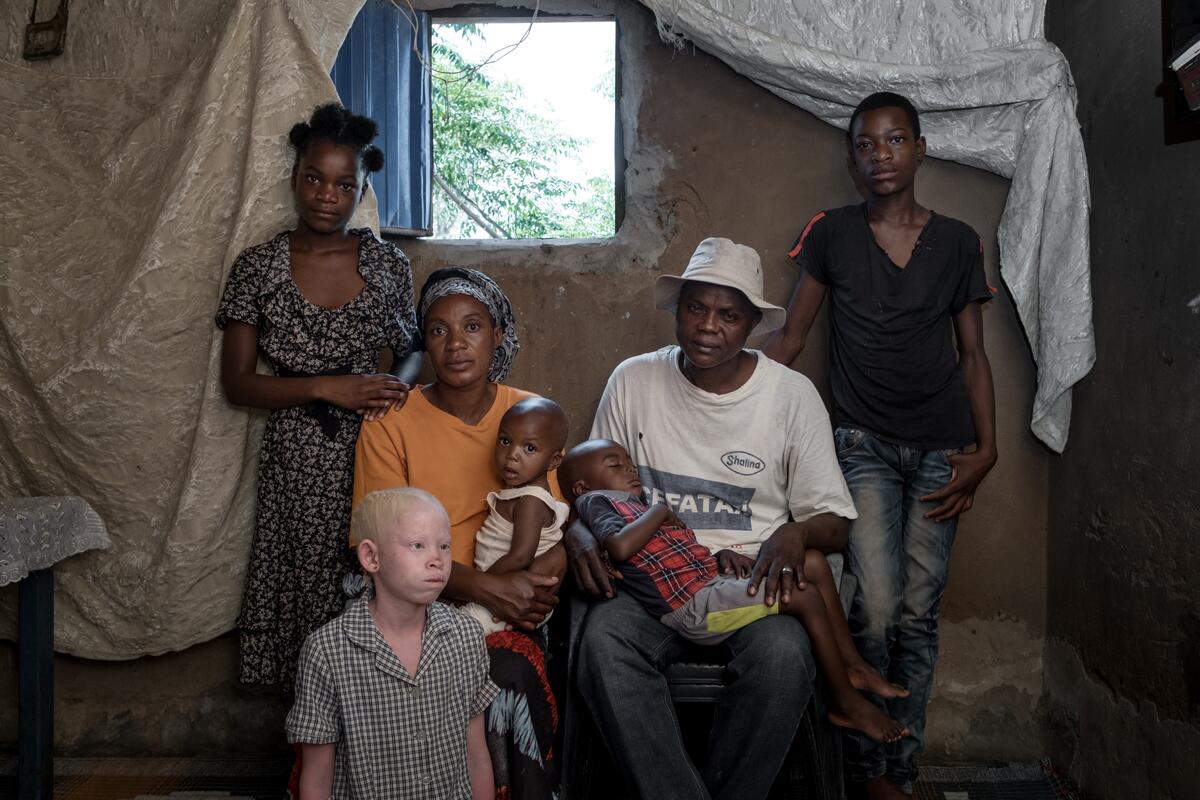Africa's refugees need urgent food aid, say UN relief agencies
Africa's refugees need urgent food aid, say UN relief agencies

GENEVA, Feb 14 (UNHCR) - The UN refugee agency and the World Food Programme (WFP) today warned that more than 1.2 million refugees in Africa could go hungry as WFP is forced to cut food aid due to a funding shortage. This could lead to health and nutrition problems, even refugee exploitation and forced repatriation.
In a joint statement released on Friday, UNHCR and WFP expressed concerns that a potential conflict in Iraq may divert donor nations' attention away from the pressing needs of Africa's long-term refugee population.
"As new emergencies arise, the interest in these long-standing cases tend to fade, leaving refugees on the brink of hunger," said WFP Deputy Executive Director, Jean - Jacques Graisse.
To avert severe hunger among the refugees, WFP urgently needs 112,000 metric tons of food worth an estimated $84 million over the next six months.
Currently, some of the refugees are only receiving half of their normal monthly food rations, and unless new funds are forthcoming, stocks of several food commodities could run out by the end of March.
It is feared that Africa's main refugee-hosting countries - Tanzania, Uganda, Kenya, Liberia, Sierra Leone, Algeria and Sudan - will be affected by interruptions in the food pipeline for one or more of the basic food commodities.
In Tanzania, last week's cut in maize rations has left more than 515,000 Burundian and Congolese refugees with only 50 percent of the normal maize ration. Other commodities could run out by the end of May. Health issues aside, the Tanzanian government has warned that if the food crisis is not resolved soon, it could force refugees to return home in a bid to prevent hunger - driven banditry and insecurity in refugee-hosting areas.
Kenya has already seen a 25-percent reduction in food rations due to the WFP funding shortage, with more food cuts expected if declining stocks are not replenished. A recent UNHCR/WFP nutrition survey in Kenya's refugee camps revealed that more than 8,000 refugee children there are malnourished, while thousands more are on the verge of malnutrition.
WFP needs new contributions totalling 11,000 metric tons of food worth $5 million for refugees in drought - hit Sudan. Uganda has only received 30 percent of food supplies to feed some 150,000 refugees and 395,000 internally displaced people.
Come March, WFP could be forced to cut rations for refugees in Liberia, including some 70,000 new arrivals fleeing the fighting in Côte d'Ivoire.
Refugees in Sierra Leone could also be affected, among them some 40,000 Liberians who arrived in the last few months. And in April, food could run out for over 155,000 refugees in Algeria.
Among other repercussions, the food shortage will make it harder for the UN refugee agency to protect refugees, especially women and children, from abuse and exploitation. "Refugee children risk being sent out to work to supplement the family's reduced rations, while women and girls may be forced to engage in exploitative relationships," warned UNHCR's Assistant High Commissioner, Kamel Morjane.
In the past, UNHCR had been able to ease food shortages by providing refugees with complementary foods like fresh vegetables and dried fish, or by increasing income-generating activities to help refugees become more self-sufficient. But this time, the agency itself is facing funding shortfalls that are affecting its ability to adequately meet the refugees' basic needs.









